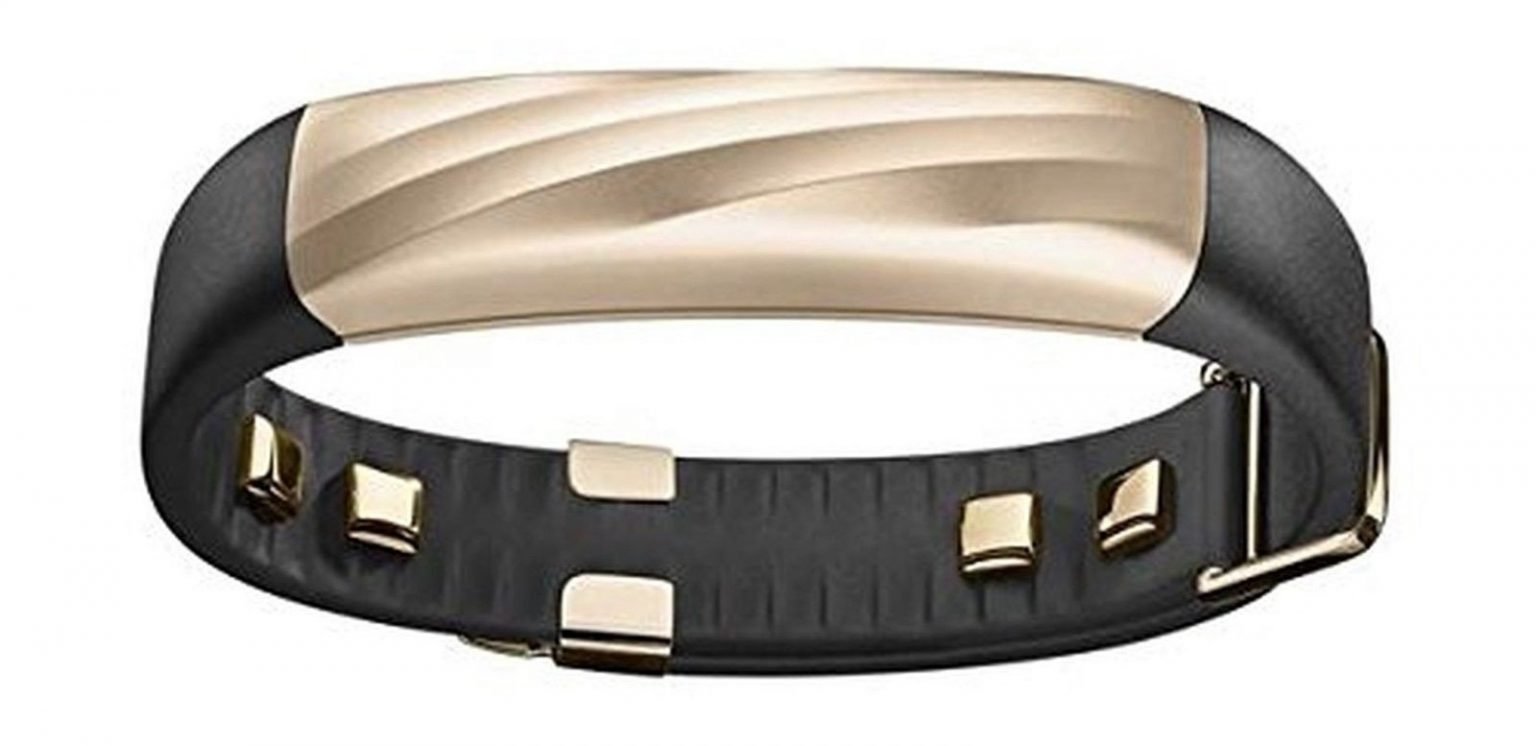
Eventually, Jawbone will offer the bracelet in several colors and design options. You have the choice of buying the band in gray and silver or plain black, but even the black version features gold studs on the inside of the bracelet that kind of stand out. While I love the way the band looks and feels, I'm not sure the studs on the inside of the band will appeal to everyone. I can't just slip the band on in the morning and go about my day - it takes that extra few minutes of fiddling and adjusting until I get it just right. The downside, however, is that the clasp is difficult to fasten and makes it annoying to adjust the band to fit your wrist.

The clasp also makes the wristband look more like jewelry than a sports band previous Jawbone wristbands were just open so that you could slide your wrist into it. The model Jawbone gave me for review features a dark gray, rubbery band with a silver module at the top with a criss-cross pattern. In fact, it doesn't look like a gadget at all - it looks more like an accessory or bracelet. The band is also better looking than most other fitness band. You can also adjust these things manually if you forget to put your band in workout mode. Sometimes the app will misjudge how long I've been working out if I don't log my workout, but it usually nails the distance. It's pretty accurate for the most part, too. But if I forget to log my run, Jawbone's new sensors can tell that I've been doing some more intense physical activity and will ask me what I've been doing. Both bands are able to offer different pieces of information: The Fitbit can tell you how many flights of stairs you've climbed, while Jawbone's bracelet can't. The truth is, in daily use, the difference isn't that noticeable.

Both bands are water-resistant, which means they can be splashed, but you can't swim with them. This is the sensor that is able to tell how many flights of stairs you have climbed throughout the day. It comes with an optical heart-rate monitor, an accelerometer, and an altimeter, which measures altitude. By comparison, the Fitbit Charge HR ($150) seems limited.


 0 kommentar(er)
0 kommentar(er)
